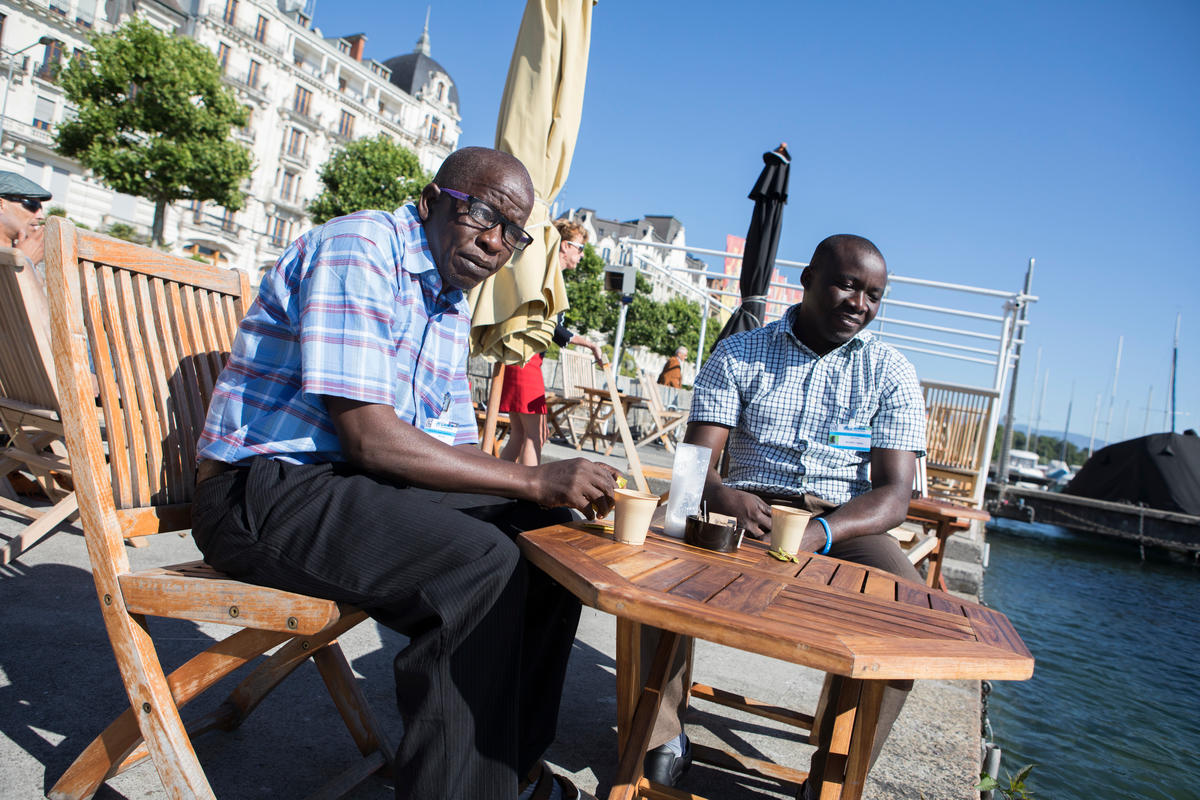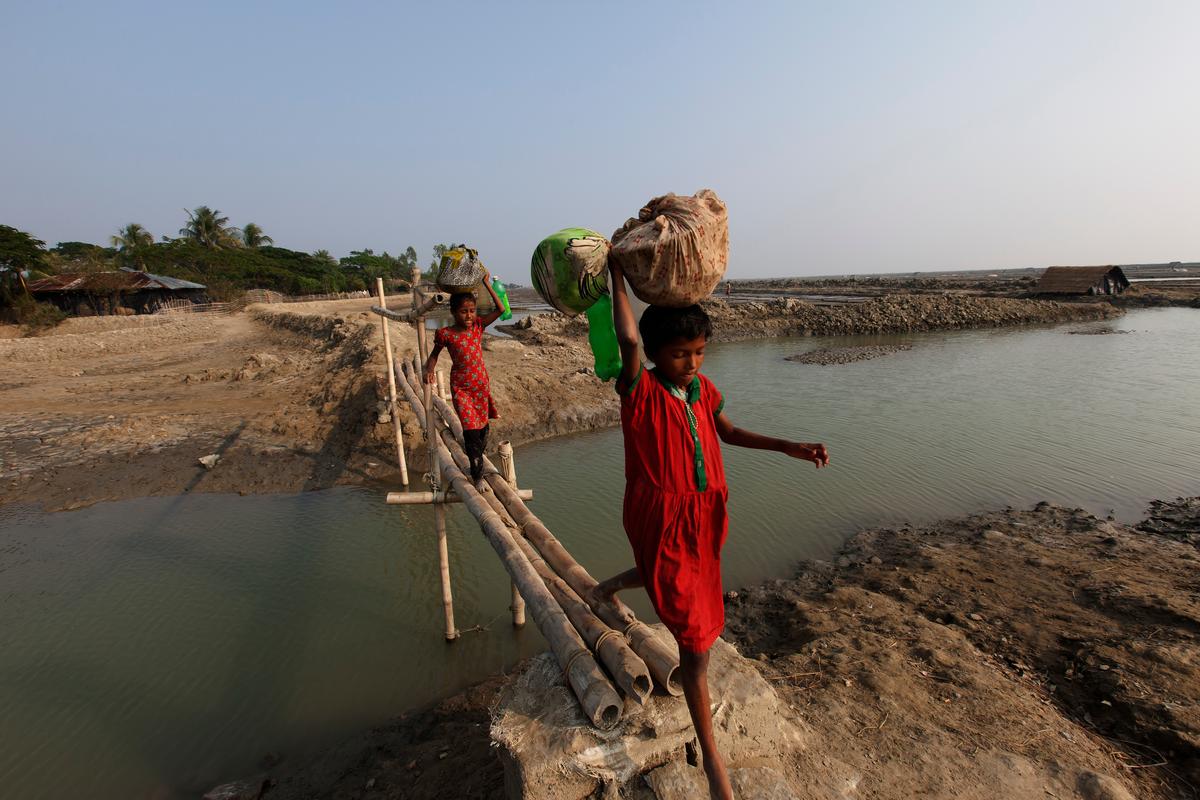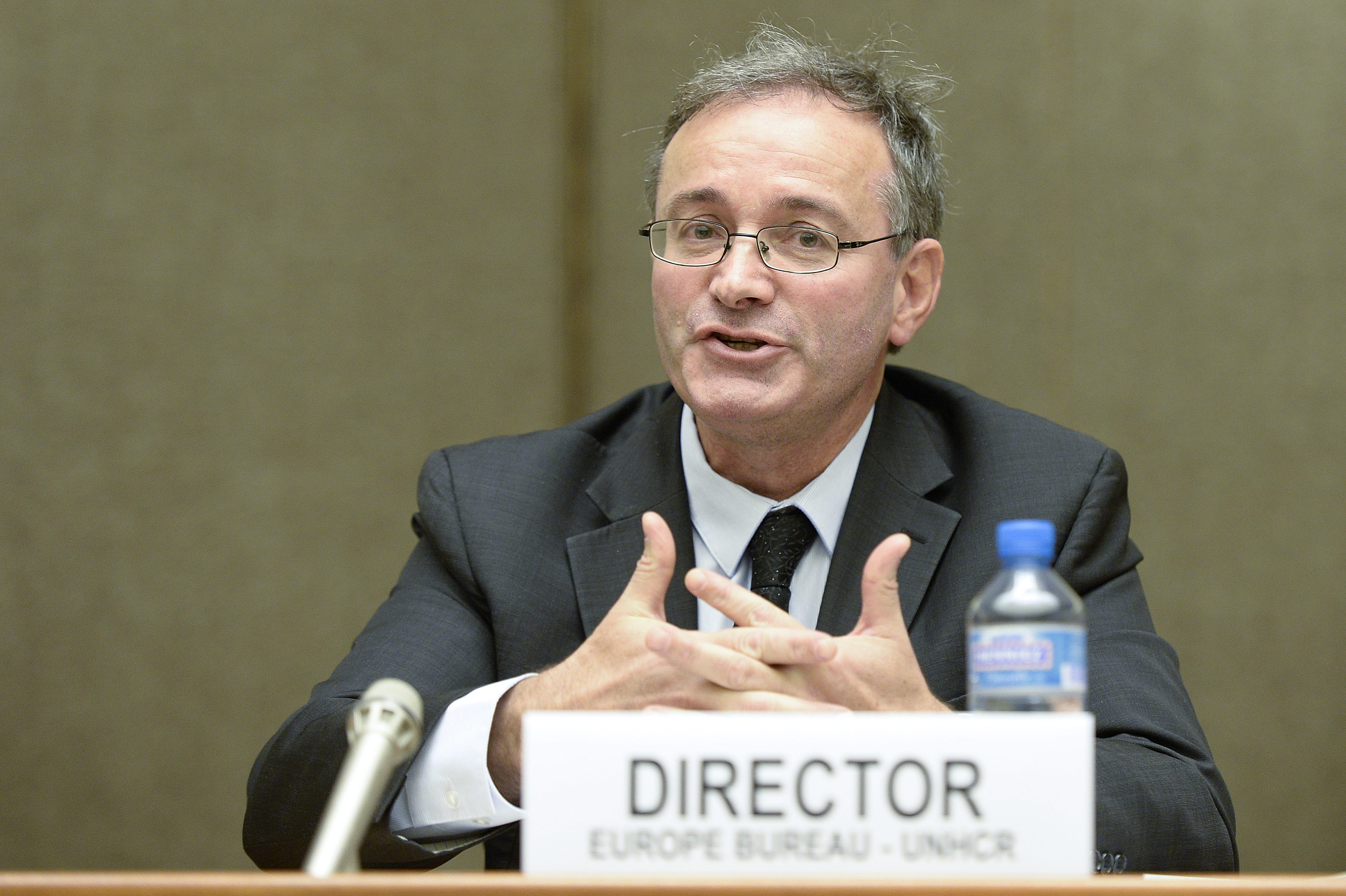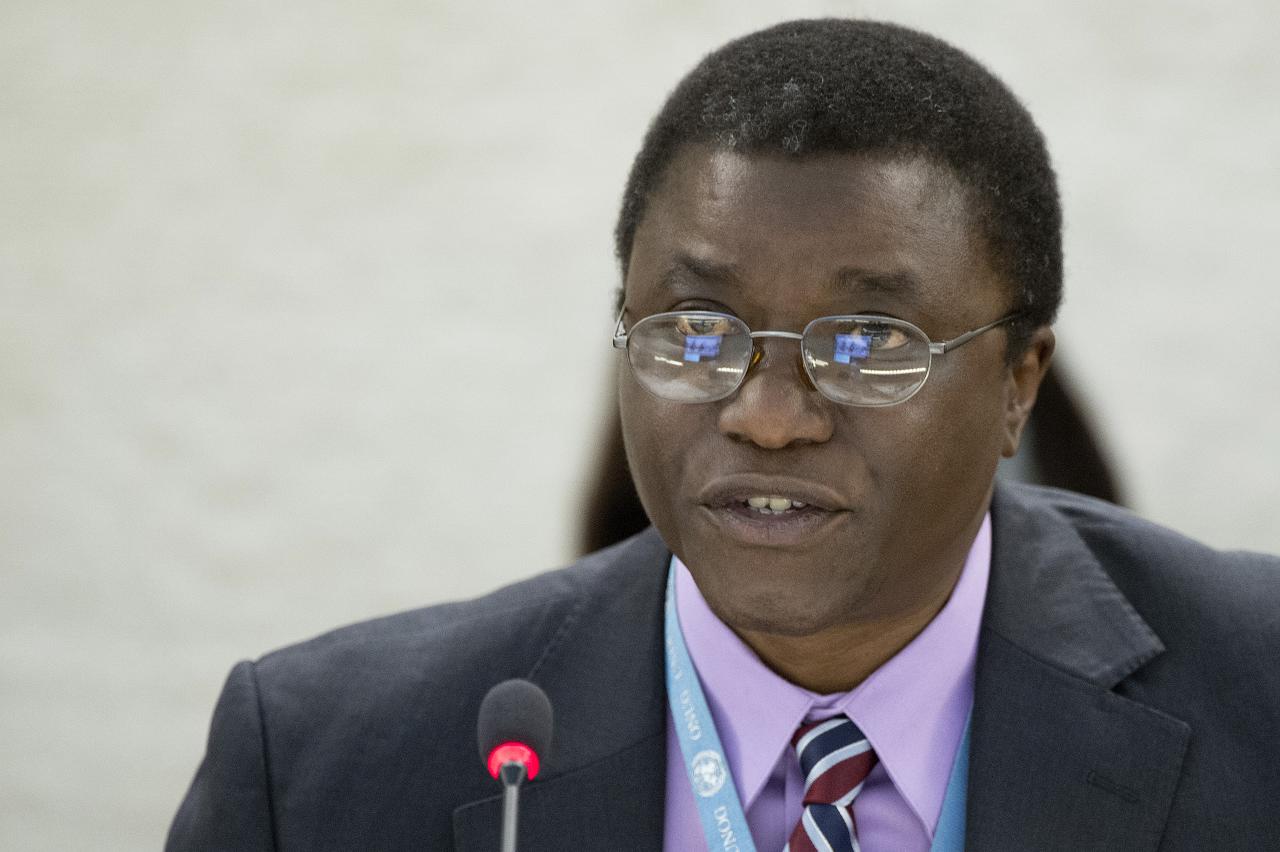Q&A: A new chapter begins in Gabon for Congolese who fled fighting
Q&A: A new chapter begins in Gabon for Congolese who fled fighting

LIBREVILLE, Gabon, September 30 (UNHCR) - At the end of July, the government of Gabon announced that civilians who fled conflict in neighbouring Republic of the Congo in the late 1990s would cease to be recognized as refugees. It also pledged to help those who wished to go home and said it would offer a dignified and durable solution for those who wish to remain in the central African country. Michel Biang, head of protocol at the Gabon Ministry of Foreign Affairs, recently discussed the issue with UNHCR External Relations Officer Céline Schmitt. He will be a member of the Gabon delegation that will attend next week's annual meeting in Geneva of UNHCR's governing Executive Committee. Excerpts from the interview:
Let's go back to the first influx in 1997. How did the government respond?
When thousands of men, women and children fled the war in the Republic of Congo in 1997, Gabon found itself facing an unprecedented historical situation. Our main preoccupation was hosting this massive flow of people, providing emergency shelter and ensuring their safety while preserving our own security. We also needed to ensure healthy coexistence between the asylum-seekers and the local population. We had to act quickly to address the humanitarian needs of these destitute, homeless people, not knowing how long the conflict would last.
The first thing we did was to welcome all the Congolese crossing our border by providing them with prima facie refugee status [literally refugee status "at first sight," as opposed to going through a refugee determination process].
We then decided not to make the refugees live in camps, but we allowed them freedom of movement in order to facilitate their social integration. We were driven by a tradition of hospitality, solidarity with our brother Congolese, and adhesion to our international commitments.
We also realized that, in consultation with UNHCR and other international and national partners, we needed to establish a legal framework and appropriate structures to manage the daily life of so many people. This was a major challenge, but I can say today that we found a pretty good way to deal with it [through legislation and the creation of a national commission for refugees].
At the end of July, the government announced that the Congolese refugees in Gabon would no longer have refugee status. What happens to them?
During the eighth and ninth rounds of tripartite consultations with UNHCR and the government of the Republic of Congo [in June 2010 and December last year respectively], it became clear to us that given the [improved] situation in Congo we could re-examine the status of refugees and envisage a cessation of their status. On this basis, we encouraged refugees to return home and gave those who did not want to repatriate the chance to acquire migrant status.
Aside from running a long awareness campaign about these options for refugees and asylum-seekers, the practical modalities needed for each option [repatriation or taking migrant status] were unrolled during the six months leading up to the deadline.
Today, the government is fully justified in declaring an end to refugee status. Before doing so, we had thought it wise to work with UNHCR to get everything ready for repatriation and the distribution of residence permits for Gabon.
Most of the refugees have opted to change their status to migrant. What happens next?
In consultation with UNHCR, we have set flexible eligibility conditions that are appreciated by everyone. And we have changed how we handle cases at our immigration counters. We have also sent out mobile teams to organize registration sessions [where refugees can ask for residence permits] in areas hosting refugees around the country. Most cases have already been dealt with, while others are being processed.
Tell us a bit more about your cooperation with UNHCR
Our collaboration with UNHCR is straightforward. We have an almost permanent dialogue. Whether it's defining the legal framework, implementation, the operational modalities or awareness campaigns, our discussions with UNHCR are regular and occur in a climate of openness, mutual respect and warmth.
What are the challenges and steps you face in this process?
Our main challenge is to drive forward a complex process that includes a mix of humanitarianism, social factors, international law and diplomacy.









